The COVID-19 pandemic has created an increased worldwide demand for N95 filtering facepiece respirators, limiting their availability for use by healthcare workers and emergency responders. Despite this shortage, employers are still obligated to provide their workers with personal protective equipment ("PPE") needed to keep them safe while performing their jobs in accordance with the the respiratory protection standards in 29 C.F.R. 1910 Subpart I. On April 3, 2020, the Occupational Safety and Health Administration ("OHSA") of the U.S. Department of Labor issued temporary enforcement guidance regarding the use of N95 respirators during the COVID-19 pandemic.
The OSHA guidance advises that all employers whose employees are required to use or are permitted voluntary use of respiratory protection must continue to manage their respiratory protection programs ("RPPs") in accordance with the OSHA respirator standards. Employers must identify and evaluate respiratory hazards in the workplace and develop and implement written RPPs with worksite-specific procedures and update their written programs as necessary to reflect changes in workplace conditions that affect respirator use. All employers should also reassess their engineering controls, work practices, and administrative controls to identify any changes they can make to decrease the need for N95 respirators. Furthermore, employers may use alternative classes of respirators that provide equal or greater protection compared to an N95 facemask, including N99, N100, R95, R99, R100, P95, P99, and P100 filtering facemasks.
Extended and Reuse of N95 Facemasks
When N95 facemasks or alternatives are not available, OSHA has advised that employers may consider the extended use or reuse of N95 facemasks. When necessary, the same worker is permitted to extend use of or reuse the facemask so as long as it its structural and functional integrity and the filter material is not physically damaged, soiled, or contaminated. Notably, employers must address in their written RPPs the circumstances under which a N95 facemask will be considered contaminated and not available for extended use or reuse. OSHA further advises that extended use is preferred over reuse because of contact transmission risks associated with removing and putting back on the masks.
Use of Expired N95 Facemasks
OSHA also permits the use of expired N95 facemasks under certain circumstances. When N95 facemasks are unavailable and the employer has made a good-faith effort to acquire the masks or to use alternative options, the use of N95 FFRs beyond the manufacturer's recommended shelf life is permitted so long as certain requirements are satisfied. These requirements include that: (1) only expired N95 masks previously certified by the National Institute for Occupational Safety and Health ("NIOSH") may be used; (2) workers must be notified that they are using expired N95 masks; (3) expired PPE should not be co-mingled with PPE items that are within their shelf life; (4) employers should visually inspect the expired N95 masks to determine if the structural and functional integrity of the respirator has been compromise; and (5) if the employer has expired N95s available from their own stockpile, the employer should seek assistance from the respirator manufacturer or independent lab regarding testing of those stored respirators prior to use. In any event, expired N95s generally must not be used to perform surgical procedures on patients infected with, or potentially infected with, COVID-19 or to perform procedures expected to generate aerosols or where respiratory secretions are likely to be poorly controlled.
Additional guidance regarding employer obligations and best practices during the COVID-19 pandemic can be found on OSHA's website.
At Hessian & McKasy we are helping clients respond to COVID-19 in all aspects of their business operations. With regard to environmental, health and safety matters we are advising clients as to OSHA’s Guidance of Preparing Workplaces for COVID-19 as well as U.S. Environmental Protection Agency (“EPA”) and Minnesota Pollution Control Agency (“MPCA”) policies and request for regulatory flexibility.
Thanks to Joseph Reutiman, associate at Hessian & McKasy, for his assistance in preparing this blog. Please see disclaimer at the bottom of the page that relates to limitations this blog and to legal advice. For information related to COVID-19 policies please contact:
Joseph Maternowski at Hessian & McKasy P.A.
T: (612) 746-5754
jmaternowski@hessianmckasy.com
www.hessianmckasy.com
www.enviroattorney.net
Please Note Disclaimer Found at Top Right of Our Website, Thank you
